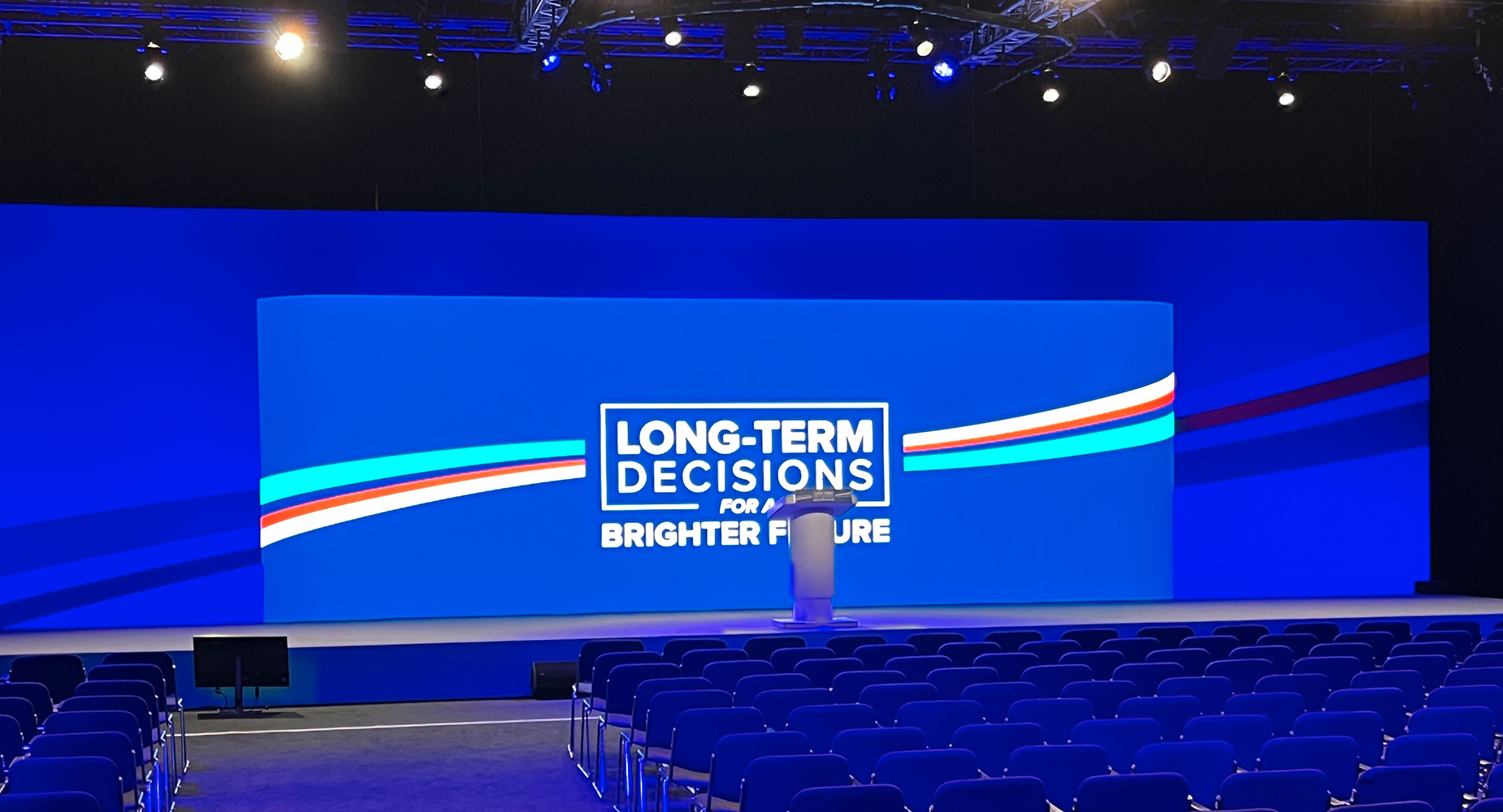It’s been 13 years since the Conservative Party entered government. At the time X-Factor was the most popular TV show, Downton Abbey had begun its first series, and the rectangular iPhone 4 was launched by Steve Jobs – who was still alive.
There has been a huge amount of cultural and economic change since then. But the changes have perhaps been most prevalent in the Tory leadership. For instance in the same period that the party produced five Prime Ministers, there were only four different Dr Who’s.
The Conservative Party’s annual conference this week featured its latest regenerated leader: Rishi Sunak – a figure elevated to power after his two predecessors, Liz Truss and Boris Johnson had both been ousted by their peers. With an election expected next year, the conference could not have been more crucial for Sunak.
So, what did we learn from this all-important gathering? Here are Pagefield’s Top 5 takeaways:
-
Rail fever left people steaming
Before conference started, a story began to circulate that Sunak would pull the plug on the controversial, and hugely expensive, HS2 railway between Birmingham and Manchester. This revelation, peppering most conversations across the conference period, was largely met by an angry response in Tory party circles.
The view of many figures was summed up by ex-Chancellor George Osborne – a member of the Cabinet that championed the project – who reacted by saying it was a “great tragedy” and an “act of economic self-harm”. The Tory Mayor of Birmingham, Andy Street, even called an ad-hoc press conference to criticise the move – and there were suggestions he’d cut up his membership card.
It may have been that the story was a deliberate and strategic ‘media trail’ leak by Team Sunak but even if it was, it left many party members fuming.
-
Long-term decisions or short-term popularity?
The new slogan of the Prime Minister and his Cabinet during conference was: Long Term Decision for a Brighter Future – a line we may hear a lot in the run-up to the next election, now rumoured to be in Autumn 2024.
The long-term decisions announced by Sunak at conference included: Phasing out the sale of cigarettes, bringing in tougher criminal sentences for sexual murders, and replacing A and T Levels with a new ‘Advanced British Standard’.
These bold policy moves – coming on the back of the recent rollback on net zero decisions – have been received well in private research conducted by Tory HQ, but the challenge acknowledged by party activists is whether they will stand the test of time.
In the face of a country seemingly tired of Tory rule, will they be enough to keep people voting Conservative?
-
Trussism was on the agenda for past and present Conservatives
A core part of any political conference is policy debate at fringe events. At conference there was a co-ordinated trumpeting of Trussism (aka ‘growth’!) by the former PM’s Cabinet and supporters but many of Team Sunak’s policies were also being viewed as a thinly veiled return to her politics.
On the Monday, a keynote speech by Truss attracted a packed audience – with hundreds queuing to hear her plea to “make Britain grow again”. Among the cheerleaders was former Brexit Party leader Nigel Farage, who made his first appearance at the conference since Margaret Thatcher was leader – perhaps a sign of where Conservative ambitions now lie.
-
The Tories have a youth problem – and they know it
One statistic we heard at numerous points over the course of the conference was that: only 1% of those aged 18-24 plan to vote Conservative at the next election. However, while there’s agreement among MPs that they are unpopular with Britain’s youth, it seems the party has come to terms with it – and are moving on anyway.
At an event hosted by Ipsos MORI, former Trade Secretary Dr Liam Fox recalled an anecdote from Lady Thatcher, who said: “we should not be worried by people who will never vote for us, but we should be by those who might do.” This seems to be the approach of Sunak’s party towards young people.
-
Businesses did turn up in full at the conference
Finally, before conference there was a great deal of speculation that businesses would not be turning up in Manchester – and would be waiting for Labour’s conference in Liverpool instead. In reality, businesses, campaigners and lobbyists turned up in droves, clearly keeping their options open on the result of the forthcoming election. Instead, it was the party members who stayed away – with official figures showing 800 fewer attended this year compared to 2021. This was most visible in the main hall, where many Cabinet ministers delivered speeches to empty seats.
All eyes will now be on Keir Starmer at next week’s Labour conference in Liverpool. Can the man seen by many as Britain’s new leader in waiting articulate a more centralised vision for the UK?



